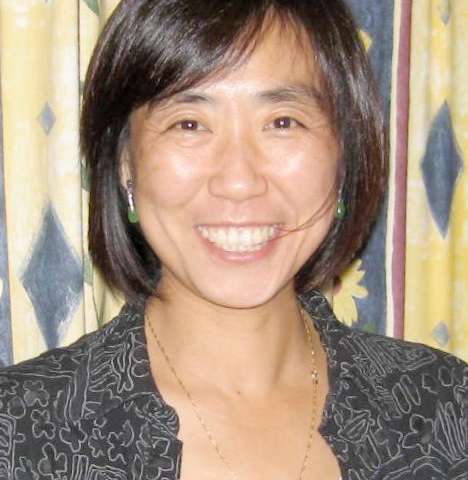UMass Amherst biochemist named a Burroughs Wellcome Fund Investigator

Li-Jun Ma, a University of Massachusetts Amherst biochemist and genomics expert, has received a coveted five-year, $500,000 Burroughs Wellcome Fund Investigator in the Pathogenesis of Infectious Disease award to develop new treatment options for opportunistic fungal infections.
Today doctors are treating an increasing number of immune-suppressed patients, and fungi are developing resistance to traditional anti-fungal drugs. Fungal infections claim over 1.5 million lives each year and pose an increasing threat to public health, Ma notes. "There is an urgent need to decipher the mechanisms underlying fungal pathogenesis and to develop novel antifungal therapies," she says.
"My lab can offer a very distinctive contribution to this very serious problem." The Ma lab studies the genetic mechanisms that underlie the aggressive pathogenicity and genome evolution at the fungus-human interface in the model fungus Fusarium oxysporum.
Ma and her colleagues will combine experimental and computational approaches to investigate pathogen virulence and host defense at the same time. Because of the huge amounts of data involved, she says, this project will use the advanced computing capabilities at the Massachusetts Green High Performance Computing Center in Holyoke.
Ma looks forward to playing an important role in solving the increasingly dire situation faced by physicians treating people with compromised immune systems such as transplant and cancer patients and those with HIV/AIDS. "It is so sad to see patients lose their battles and families lose their loved ones over infections after enduring long and complicated medical treatments," Ma says. "We really need to deal with the problem."
Members of the fungus kingdom are cryptic, Ma notes. "We don't see them even though they are literally everywhere." In addition to the human clinical complications of fungi, those in the Fusarium group cause a familiar bane of backyard gardeners, tomato wilt, and cost many millions of dollars in crop losses worldwide to farmers each year.
Fungicides used in agriculture employ the same mechanisms as antifungals used in clinical treatments, Ma says, and these pathogens are developing drug resistance in both plants and humans. "Now fungi see a traditional fungicide and laugh it off. We need a new way to deal with the problem."
Her new approach relies on understanding the special genomic structure of these pathogens, where a genome can not only receive genetic material vertically from parent to offspring, but "horizontally," in a manner other than by traditional reproduction. Ma and colleagues have a very good idea of the F. oxysproum genome and will use the knowledge to develop a new method of defeating fungi.
"Understanding the genome structure allows us to identify master regulators that can be used as novel drug targets," she says. In the next five years, she adds, her research group expects to deliver candidate antifungal targets, and a high-throughput screening pipeline that can be used to assay fungal responses to different treatments. These will lay the foundation for the development of next-generation antifungal treatments.
Burroughs Wellcome Fund president John E. Burris says, "The fund awards excellence at an individual level and provides an opportunity for scientists to leverage our support into long and fruitful careers." In particular, the infectious disease investigator award is given to "support accomplished investigators at the assistant professor level to study pathogenesis, with a focus on the interplay between human and microbial biology, shedding light on how human and microbial systems are affected by their encounters."
Based in Research Triangle Park, N.C., the fund this week announced awards totaling $22.5 million to 50 individual researchers who have exhibited extraordinary leadership and skills and been recognized for their excellence in biomedical research.
Provided by University of Massachusetts Amherst